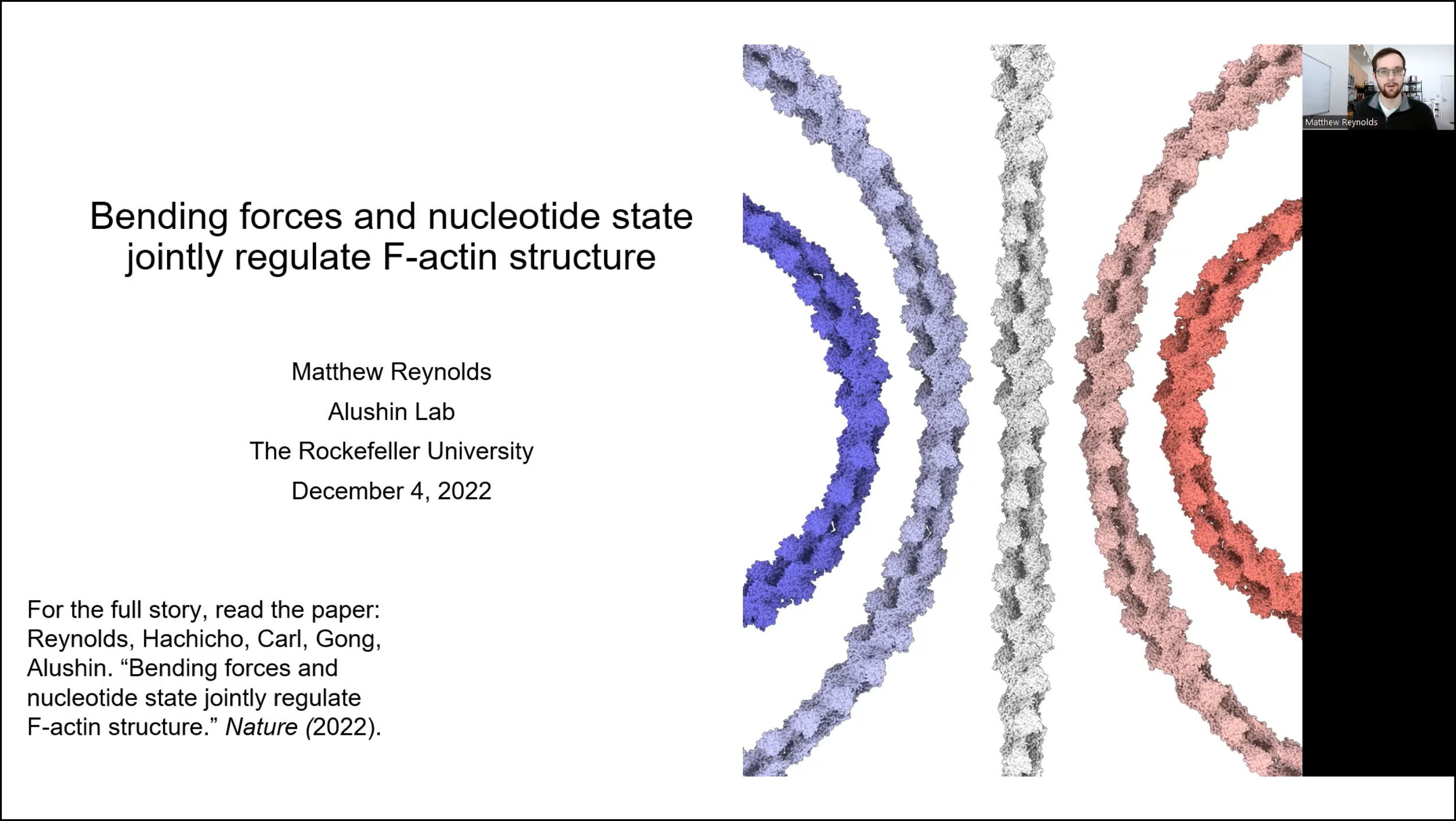Bending forces and nucleotide state jointly regulate F-actin structure
Matthew J Reynolds1, Carla Hachicho1, Ayala G Carl1,2, Rui Gong1, Gregory M Alushin3
- Laboratory of Structural Biophysics and Mechanobiology, The Rockefeller University, New York, NY, USA.
- Tri-Institutional Program in Chemical Biology, The Rockefeller University, New York, NY, USA.
- Laboratory of Structural Biophysics and Mechanobiology, The Rockefeller University, New York, NY, USA. galushin@rockefeller.edu.
Abstract
ATP-hydrolysis-coupled actin polymerization is a fundamental mechanism of cellular force generation1-3. In turn, force4,5 and actin filament (F-actin) nucleotide state6 regulate actin dynamics by tuning F-actin's engagement of actin-binding proteins through mechanisms that are unclear. Here we show that the nucleotide state of actin modulates F-actin structural transitions evoked by bending forces. Cryo-electron microscopy structures of ADP-F-actin and ADP-Pi-F-actin with sufficient resolution to visualize bound solvent reveal intersubunit interfaces bridged by water molecules that could mediate filament lattice flexibility. Despite extensive ordered solvent differences in the nucleotide cleft, these structures feature nearly identical lattices and essentially indistinguishable protein backbone conformations that are unlikely to be discriminable by actin-binding proteins. We next introduce a machine-learning-enabled pipeline for reconstructing bent filaments, enabling us to visualize both continuous structural variability and side-chain-level detail. Bent F-actin structures reveal rearrangements at intersubunit interfaces characterized by substantial alterations of helical twist and deformations in individual protomers, transitions that are distinct in ADP-F-actin and ADP-Pi-F-actin. This suggests that phosphate rigidifies actin subunits to alter the bending structural landscape of F-actin. As bending forces evoke nucleotide-state dependent conformational transitions of sufficient magnitude to be detected by actin-binding proteins, we propose that actin nucleotide state can serve as a co-regulator of F-actin mechanical regulation.
Presented by Matthew J Reynolds | ORCID iD

